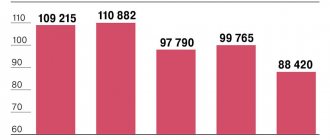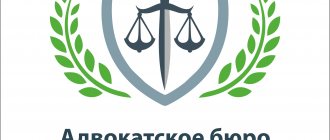Completed drug sale or attempt?
On the pages of my website, I have repeatedly given examples from judicial practice in cases of drug trafficking. And the point is not that I, as some have already thought, specialize in this kind of criminal cases. Most likely, we can talk about the high prevalence of such cases in the practice of investigative authorities, the low quality of the investigation and the reluctance of the courts to delve into all the circumstances of the case, to listen and give a proper assessment to the well-founded arguments of the defense. Numerous errors, and often purposeful actions of investigators, when the investigator deliberately overstates the qualifications of the actions of the accused, blaming their sale instead of illegal possession of drugs, instead of preparation or attempted illegal sale - a completed crime, when instead of one episode of criminal activity, the actions of the accused are divided into Several separate crimes lead to the fact that the accused appears before the court as a completely asocial type, who has turned drugs into a trade and his life’s work.
The task of the defense, which, as my legal practice shows, I very often have to face, is to present to the judge in a brief, clear and accessible form all the errors, inconsistencies, and contradictions in the position of the investigative authorities. Principled judges who delve into all the circumstances of the case, are critical of unsubstantiated statements, unverified facts, conjectures and conjectures of the investigation, giving a proper assessment of violations of criminal procedural legislation that occur in almost every similar case, as a rule, take measures to correct errors made in stage of the investigation, as a result of which the actions of the convicted are qualified in accordance with the provisions of the General and Special Parts of the Criminal Code of the Russian Federation, clarifications of the highest judicial authorities, and the imposed punishment meets the requirements of legality and justice. The most striking, indicative and significant examples of the adequate position of the courts of first instance in imposing punishment, correcting incorrect qualifications in cases related to drug trafficking are given by me on the website for general use in similar cases.
This case is a continuation of the story that was described in the website article “Sentence with a punishment below the lowest limit (Article 64 of the Criminal Code of the Russian Federation).”
As already indicated, the person convicted of three episodes of drug sales in a significant (2 completed episodes) and large amount (attempted sale) was sentenced under Article 64 of the Criminal Code of the Russian Federation in the form of 7 years and 6 months of imprisonment.
Not agreeing with either the qualifications or the imposed punishment, the defense filed an appeal, in which, in addition to arguments about the lack of proof of the guilt of the convicted M.P.A., it was also pointed out that his two episodes of selling narcotic drugs on a significant scale were incorrectly classified as completed crimes.
The circumstances of these two episodes were absolutely identical: M.P.A. under unknown circumstances, acquired two quantities of narcotic drugs in a significant amount, and then placed these drugs in two caches in a forested area. Both caches were discovered by police officers, the drugs were seized, and M.P.A. two episodes of completed sale of narcotic drugs in a significant amount were charged. At the same time, the position of the investigation and the state prosecution for a person inexperienced in the intricacies of criminal law looked somewhat contradictory: there was no direct transfer of drugs to the final buyer, moreover, the drugs were eventually confiscated from the same place where the defendant allegedly buried them, but his actions this was qualified as a completed sale, that is, as if the drugs were handed over to the purchaser.
In this case, the prosecution referred to the provision of paragraph 13.1 of the Resolution of the Plenum of the Supreme Court of the Russian Federation dated June 15, 2006 No. 14, which stated that the actual receipt by the purchaser of narcotic drugs is not necessary to qualify the sale as a completed crime. It is enough for the distributor to complete all the necessary steps to transfer the illegal substances to the purchaser.
To support its position, the prosecution presented the defendant’s phone number, which contained photographs of “stash caches” with geolocation coordinates. This, according to the prosecution, was enough to conclude that the illegal sale was completed.
To refute the prosecution's arguments, the defense presented data that the contents of the defendant's smartphone, firstly, do not allow establishing whether the defendant himself took the indicated photos of the caches with geolocation coordinates, or received these photos from a drug seller, intending to purchase the specified funds for his own needs . Secondly, information about sending these photos to the drug buyer was not received either during the investigation or in court. Accordingly, the imaginary purchaser himself was not identified. Third, the defense presented compelling evidence that at least some of the data was placed on M.P.A.'s phone. after the phone was seized from M.P.A. by police officers.
The court of first instance did not take into account the above arguments and decided that M.P.A. For his part, he carried out all the actions to transfer the drugs to the purchaser and completely duplicated the plot of the charges from the indictment in the court verdict. Accordingly, the qualification of actions of M.P.A. remained the same.
The verdict of the Kuntsevsky District Court of Moscow regarding M.P.A. was appealed to the Moscow City Court, where the arguments of the defense lawyer's appeal regarding incorrect qualification were fully satisfied. The panel of judges agreed with the defense that the communication of information about the location of the placed bookmarks did not occur, this information was not brought to the attention of the acquirers, as a result of which the actions of M.P.A. for two episodes of illegal sale of narcotic drugs in a significant amount (clause "b" part 3 of article 228.1 of the Criminal Code of the Russian Federation) were reclassified as attempted illegal sale of these drugs (part 3 of article 30, clause "b" part 3 Art. 228.1 of the Criminal Code of the Russian Federation), appointed M.P.A. the punishment for the totality of three crimes was reduced by 1 year to 6 years 6 months of imprisonment.
Appeal ruling of the Moscow City Court with reclassification of two episodes of sale of narcotic drugs (clause “b”, part 3, article 228.1 of the Criminal Code of the Russian Federation) to attempted sale (part 3, article 30, clause “b”, part 3, article 228.1) Criminal Code of the Russian Federation) narcotic drugs (extracts):
- Share on facebook
Added 04/12/2019 | Litigation practice, Criminal cases
What is meant by the sale of narcotic drugs?
Lawyer Antonov A.P.
According to the Resolution of the Plenum of June 15, 2006, the sale of drugs should be understood as the illegal activity of a person aimed at their paid or gratuitous sale (sale, donation, exchange, payment of debt, lending, etc.) to another person (hereinafter referred to as the acquirer) . At the same time, the transfer by a person of the sold products, substances, plants to the purchaser can be carried out by any means, including directly, by informing the purchaser about the place of their storage, laying them in a place agreed upon with him, or administering an injection.”
If you rely only on this text, you may have a misconception about “any methods.” However, not every action of transferring a drug from hand to hand constitutes sale, and even if it can be recognized as such, in many cases it is not a completed crime. In this part, the Resolution of the Plenum must be considered as interconnected with the appellate and cassation practice of the Supreme Court, which will be shown in specific examples below.
Relatively recently, most sales cases were based on test purchases. Such cases still appear now, but the contactless method of drug trafficking has become more widespread. Test purchases have been repeatedly and not without reason recognized by the European Court as unacceptable provocations, which prompted the Supreme Court to more critically assess the legality and validity of this type of operational activity. With bookmarks the situation is even worse. Since in bookmarking, unlike purchasing, it is better to catch a buyer than a seller. Large sizes for many of the most common substances (primarily smoking mixtures) are inadequately small; a buyer who takes a mortgage almost always commits a serious crime (under Part 2 of Article 228), which has a beneficial effect on statistics and creates the appearance of a “fight against drugs.” In this regard, the position of the Supreme Court on the cases of pawnbrokers is fundamentally important. Therefore, let's look at it in detail using a recent example.
Pawnbrokers In the case of Semenova, Nikolaev and Ivanov, considered at the first instance by the Supreme Court of the Chuvash Republic, the Supreme Court of the Russian Federation issued an Appeal Ruling of the Supreme Court of the Russian Federation dated February 5, 2021 No. 31-APU19-1, in which it expressed certain criteria for distinguishing between completed and unfinished sales crimes in relation to actions pawnbrokers. Although the defense appealed the verdict regarding the guilt of the convicts, the Supreme Court made changes only in terms of the qualification of a number of imputed episodes: “The court’s conclusions about the guilt of Semenova E.P. and Nikolaeva E.A. for actions with a narcotic drug with masses of 0.93 grams (cache on Universitetskaya Street, episode No. 1) and 0.87 grams (cache near a pillar on Nadezhda Street, Episode No. 2) are justified and are confirmed by the testimony of the convicts that from part of the narcotic drugs received from an unknown person registered under the nickname <…>, Nikolaev E.A. at the request of Semenova E.P. made hiding places, photographed them on the convict’s phone and, with a description of the “bookmarks,” handed the phone to Semenova, and she sent information about the hiding places <…>, in the phone of the detained Semenova E.P. contained information about the locations of the caches that were identified, from which narcotic drugs were seized <…>. Each of these crimes committed by Semenova and Nikolaev was qualified by the court of first instance under paragraph “a” of Part 4 of Art. 228.1 of the Criminal Code of the Russian Federation, as the illegal sale of narcotic drugs, in a significant amount, committed using electronic and information and telecommunication networks (including the Internet), organized by a group, motivating its conclusion by the fact that the convicts completed all the necessary actions for the sale of narcotic drugs.
The panel of judges cannot agree with the correctness of such an assessment of the actions of the convicted, since it does not comply with the provisions of the General Part of the Criminal Code of the Russian Federation and the clarifications of the Plenum of the Supreme Court of the Russian Federation. According to Part 3 of Art. 30 of the Criminal Code of the Russian Federation, intentional actions (inaction) of a person directly aimed at committing a crime are recognized as an attempted crime, if the crime was not completed due to circumstances beyond the control of this person.
In paragraphs 13.2 of the resolution of the Plenum of the Supreme Court of the Russian Federation “On judicial practice in cases of crimes related to narcotic drugs, psychotropic, potent and toxic substances” explains that the illegal sale of narcotic drugs should be understood as illegal activity aimed at selling them for compensation to another person to the purchaser. Illegal sale should be considered a completed crime from the moment the person performs all the necessary actions to transfer the specified funds to the acquirer, regardless of their actual receipt by the acquirer. At the same time, the transfer of the funds being sold to the acquirer can be carried out by any means, including directly or by informing the acquirer about the place of their storage, or laying them in a place agreed upon with him, etc. If the person, in order to carry out the intent to illegally sell narcotic drugs illegally acquires, stores, transports, manufactures, processes these funds, thereby committing actions aimed at their subsequent sale and constituting part of the objective side of sales, but due to circumstances beyond his control does not transfer these funds to the purchaser, then such a person bears criminal liability for attempted illegal sale of these funds.
According to the factual circumstances of the crimes of Semenov E.P. established by the court. and Nikolaev E.A. on behalf of the organizer of the group <...> directly carried out actions aimed at selling the narcotic drugs received from him, for which they placed them in caches and transferred the data on the location of the caches to the same organizer. The organizer then had to find buyers for these drugs, receive payment from them and tell them the address of the caches in which the drugs were stored. However, during the inspection of the crime scene, the drug was seized from both caches by police officers. At the same time, the prosecution did not provide evidence that the organizer of the group found buyers for these drugs and provided them with information about the location of the caches. It is not possible to clarify these circumstances, since the organizer of the group has not been identified.
By virtue of Art. 14 of the Code of Criminal Procedure of the Russian Federation, since the verdict cannot be based on assumptions, and irremovable doubts about the guilt of the convicted are interpreted in their favor, the Judicial Panel proceeds from the fact that information about the location of narcotic drugs was not brought to the attention of consumers by the organizer. Thus, despite the fact that Semenova E.P. and Nikolaev E.A. fulfilled their assigned role in the organized group by placing drugs in caches and reporting their addresses to the organizer of the group; information about the location of the caches was not communicated by the organizer to consumers due to circumstances beyond the control of the convicted persons. The fact that convicts transfer information about the location of caches with narcotic drugs to their leader does not indicate the completion of the sale, since he, along with the convicts, is a co-perpetrator of the crime as part of an organized group, and not the purchaser of the narcotic drug.
In connection with the above, the actions of Semenova and Nikolaev for each of the two crimes are subject to reclassification from paragraph “a” of Part 4 of Art. 228.1 of the Criminal Code of the Russian Federation on Part 3 of Art. 30, paragraph “a”, part 4, art. 228.1 of the Criminal Code of the Russian Federation as an attempt on the illegal sale of narcotic drugs in a significant amount, committed using electronic and information and telecommunication networks (including the Internet), organized by a group.”
Thus, the Supreme Court formulated the conditions for recognizing sales committed by bookmarking as a completed crime:
Criminal penalties for mail
Vitaly Kubyshko and Kristina Abramova are awaiting the court verdict. They are accused of selling narcotic drugs on an especially large scale. In their house, they set up a real workshop in which they packaged smoking mixtures into household appliances. The couple in love bought the goods in bulk, after which they packaged the drugs and hid them in the bodies of deep fryers, kettles, food processors and other household utensils. Of course, the volumes sent were small, but dealers were afraid to send large quantities, the risk was too great, although the idea of using washing machines or refrigerators for these purposes came to mind more than once. The young people claim that they sold drugs to save money for their wedding. Apparently, the wedding will have to be postponed for many years.
“According to Article 228 of the Criminal Code, illegal acquisition, storage, transportation, production, processing of narcotic drugs, plants, psychotropic substances or their analogues is punishable by imprisonment for up to 15 years, if it is a large amount. Domestic legislation in relation to drug dealers cannot be called loyal. The statistics speak for themselves: the proportion of those serving sentences for such crimes is growing year by year. Back in 2004, there were about 7% of such prisoners, now the figure has exceeded 25%,” says criminal lawyer Vyacheslav Loskutov.
Increasingly, drug sellers are resorting to regular mail. This is not because they want to waste extra time and want to save money. It’s just that the volume of correspondence is so large that it is simply impossible to track all the parcels. In small courier companies, where dispatch and delivery are made from hand to hand, it is easier to track the addressee and sender, but there is much less control. As a rule, carriers are more interested in cost and timing, and not in what is inside the parcel or package. Even inside cans of powdered sports nutrition, investigators found mini-containers with prohibited substances.
“Drug distributors often use the Internet. Their resources are blocked, and law enforcement officers are actively hunting for sellers. Despite this, such sites are opened again and again, and dealers use conspiracy and so-called “bookmarks”. They tell customers where to pick up the product. This could be the nearest gateway or entrance, a bench in the park or a drainpipe,” says criminal lawyer Vyacheslav Loskutov.
As for drug smuggling from abroad, the routes and methods of delivery have not changed for many years. Suppliers of heroin or anasha are Afghanistan and the sunny countries of Central Asia, synthetic drugs flow across the border with China, and some more come from Europe. Delivery methods can be very different: couriers, risking their lives, swallow and carry dozens of ampoules inside themselves, but there are also large shipments that they try to transport by sea or by plane. The volumes are huge, but far from being the same as in the USA. Local police regularly receive a “catch” of tens and sometimes hundreds of tons, and chartered ships and even submarines are used for delivery.
“Article 229.1 of the Criminal Code of the Russian Federation, that is, smuggling of narcotic drugs, psychotropic substances, their precursors or analogues, as well as instruments or equipment under special control, is punishable by imprisonment for up to 20 years,” explains criminal lawyer Vyacheslav Loskutov.
17.06.2019
The use, storage and sale of narcotic drugs, psychotropic substances and their analogues entail administrative and criminal liability.
Trafficking in narcotic drugs is prohibited on the territory of the Russian Federation.
CRIMINAL LIABILITY:
For committing actions related to illegal drug trafficking, persons are held criminally liable (for foreign citizens - with a subsequent ban on entry into the Russian Federation until the criminal record is expunged or expunged).
For illegal acquisition, storage, transportation, or production of narcotic drugs, persons are subject to criminal liability under Article 228 of the Criminal Code of the Russian Federation, which provides for punishment of up to 15 years in prison.
For the illegal production, sale, and transfer of narcotic drugs, persons are prosecuted under Article 228.1 of the Criminal Code of the Russian Federation, which provides for punishment of up to life imprisonment.
For the movement of narcotic drugs across the border of the Russian Federation, persons are additionally brought to criminal liability under Article 229.1 of the Criminal Code of the Russian Federation, which provides for punishment of up to 20 years in prison.
For inducement to consume narcotic drugs, psychotropic substances or their analogues, Article 230 of the Criminal Code of the Russian Federation establishes criminal liability and provides for punishment of up to 15 years in prison.
Since February 2015, the Criminal Code of the Russian Federation has established liability for the trafficking of new potentially dangerous psychoactive substances (salts, mixes, spices), the maximum penalty is up to 8 years in prison (Article 234.1 of the Criminal Code of the Russian Federation).
When assigning punishment, an aggravating circumstance is the commission of a crime while intoxicated.
If you voluntarily hand over narcotic drugs to law enforcement agencies and actively help the investigation, then there is the possibility of exemption from criminal liability.
ADMINISTRATIVE RESPONSIBILITY:
For the use of narcotic drugs or psychotropic substances (new potentially dangerous psychoactive substances) without a doctor’s prescription, liability is provided in the form of a fine of up to 5,000 rubles or administrative arrest for up to 15 days (Part 1 of Article 6.9 of the Code of Administrative Offenses of the Russian Federation).
For involving a minor in the use of new potentially dangerous psychoactive substances or intoxicating substances - a fine of up to 3,000 rubles (Article 6.10).
For avoiding undergoing diagnostics, preventive measures, treatment for drug addiction and rehabilitation in connection with the consumption of narcotic drugs or psychotropic substances without a doctor’s prescription (Article 6.9.1).
For the promotion of narcotic drugs, psychotropic substances or their precursors and new potentially dangerous psychoactive substances (Article 6.13).
For the consumption of narcotic drugs or psychotropic substances in public places (Article 20.20).
Parents are subject to administrative liability in the form of a fine of up to 2,000 rubles for the use of narcotic drugs or psychotropic or intoxicating substances by minors (Article 20.22).
For the acquisition, storage, transportation, production, processing without the purpose of sale, or the use of narcotic drugs or psychotropic substances without a doctor’s prescription, foreign citizens are subject to administrative liability and deportation from the Russian Federation, which provides for a subsequent ban on entry into the Russian Federation for 5 years (Art. 6.8, 6.9).
A person who voluntarily applies to a medical organization for treatment is exempt from administrative liability for this offense. A person duly recognized as a drug addict may, with his consent, be sent to medical or social rehabilitation and exempted from administrative liability for committing offenses related to the use of narcotic drugs or psychotropic substances.
You can contact the drug control department of the Ministry of Internal Affairs of Russia for the Berezniki urban district by phone: 8 (3424) 26-14-23; 86.










